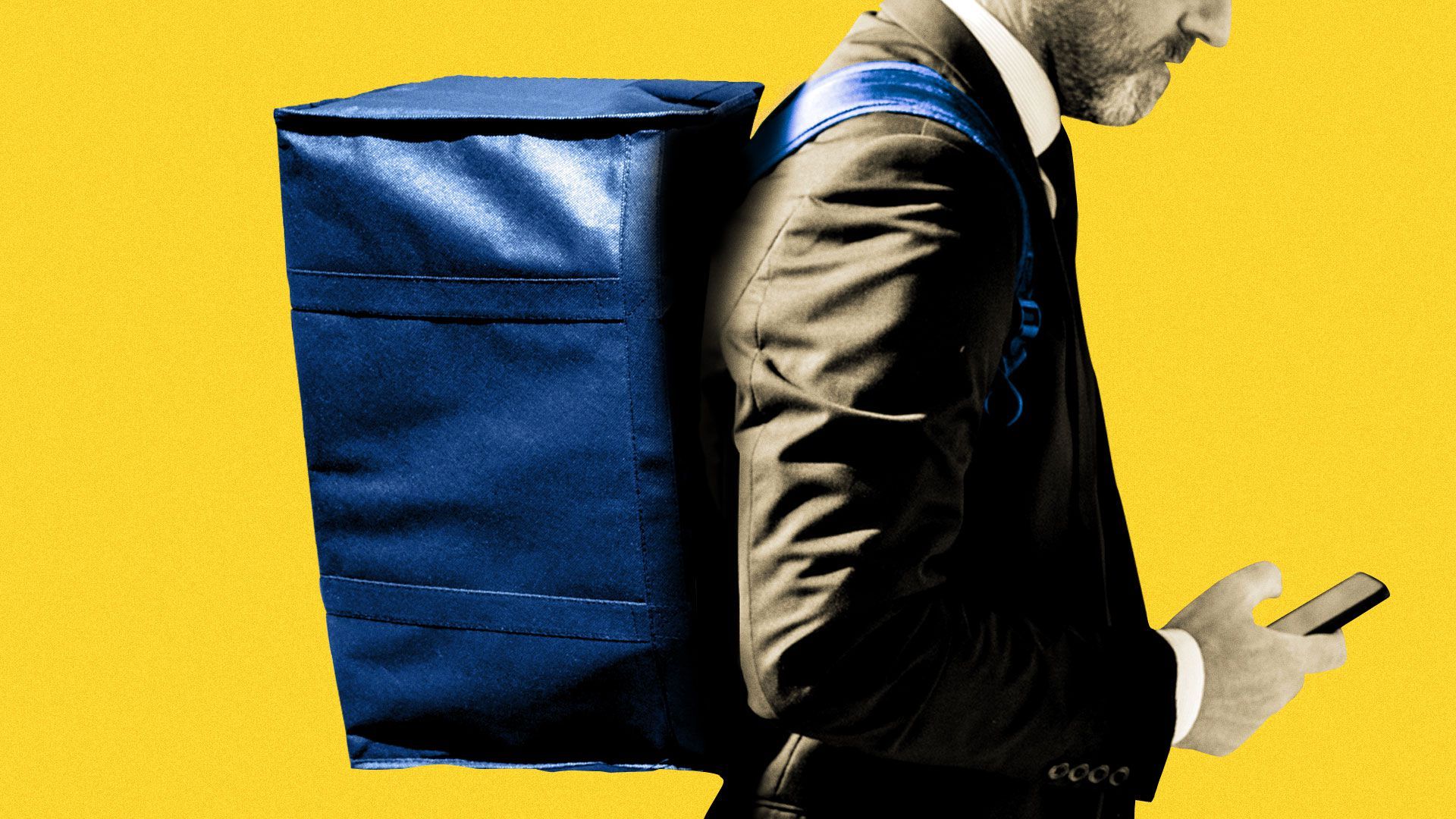Gig companies face criticism over California campaign tactics
Add Axios as your preferred source to
see more of our stories on Google.

Illustration: Eniola Odetunde/Axios
Gig companies backing a California ballot measure that would let them continue to classify drivers as contractors face increasing criticism for some of the tactics they are funding.
Why it matters: Passing the proposition is the only way for ride-hailing and delivery gig companies to continue operating as they have been after California passed a law requiring them to treat their workers as employees.
The big picture: Uber, Lyft, DoorDash, Postmates and Instacart have spent about $184 million on the "Yes on Prop. 22" campaign, making it the most expensive in California's history.
- The companies are pursuing a state ballot measure to secure the ability to classify their drivers as independent contractors after a law codifying stricter requirements went into effect at the beginning of the year.
- Uber and Lyft are currently in a court battle that would force them to reclassify drivers if they lose in November. Others are facing similar legal challengers.
Driving the news: The campaign has been paying to be included in what's known as "slate mailers," mass flyers that support multiple candidates and measures, in an apparent effort to associate their proposition with progressive candidates and causes, according to SF Gate.
- "Every campaign and candidate listed in the slate mailer pays the slate vendors to appear," a campaign spokesman tells Axios. "We’re one of half a dozen campaigns represented on the mailer and all expenses related to the mailers are reported in our campaign spending reports."
- This follows Uber and Lyft's recent rollout of messages about Prop. 22 in their driver and passenger apps, which raised some criticism over their pushiness and lack of transparency. "We are using Uber’s app primarily to help mobilize the tens of thousands of drivers who use Uber, 72% of whom support Prop 22," an Uber spokesperson told Axios, adding that the in-app message to drivers has since been changed to directing them to information.
- Grocery delivery company Instacart has also made campaign inserts available in one Bay Area store for its workers to include in customer orders, though the company says those were voluntary. "As part of our support for Prop 22, we’re communicating directly with customers and shoppers on this important issue," says a spokesperson.
Flashback: This is far from the first time the companies have pushed their customers and drivers to advocate on behalf of their politics.
- In 2015, Uber used its ride-hailing app to promote its opposition to NYC Mayer Bill de Blasio's proposed caps on the number of cars roaming the city.
- Fellow "sharing economy" company Airbnb also made headlines that year for a set of sarcastic ads touting its tax contributions as part of its efforts to defeat a San Francisco ballot proposition.
Go deeper: The gig economy is on the ballot
